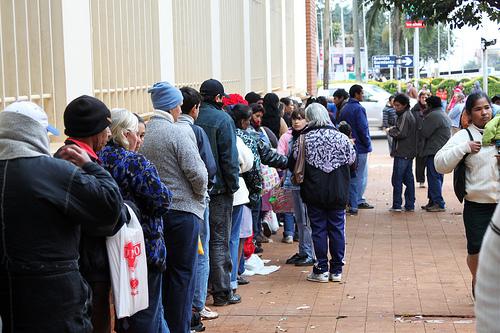
Photo by: whatmegsaid
When it comes to government policy it is rarely acceptable for politicians to do nothing. Even if it’s only to give the appearance of doing something and instilling confidence, the government actually does have a role to play. While there is certainly a case for stimulus and crisis management, too much government intervention can completely upset the whole purpose of free markets. Even worse, the fear of government intervention can inject the same uncertainty in the market that it is supposed to help assuage.
The 2008 Crisis
In retrospect there is a lot of criticism about the TARP-the Troubled Asset Relief Program. Some politicians complain that the prices paid for the equities were too high. This criticism is somewhat problematic, since the whole purpose of the TARP was to pay more than the market was willing to pay for distressed banks. Others claim that it was unnecessary, and that the market would have sorted things out itself. These criticisms conveniently forget the abject panic that had beset the markets when the idea was put forth. There was a tremendous amount of uncertainty as to whether the banking system was going to completely collapse and how the world would react.
With all its flaws the TARP may very well have injected some confidence into the market. The same can be said of Obama’s sweeping stimulus. Investors and businessmen knew that a large dose of spending was coming and had broad ideas about what it would include. Economists may argue, but a case can be made for all these changes, particularly when they’re done quickly and in a sweeping fashion.
The Problem
The problem arises when the government becomes a first resort instead of a last resort. When people expect the government, instead of natural forces, to correct all the ills of the market, uncertainty is sure to follow. The government can’t do everything, so the economy becomes a guessing game of trying to determine which programs the government will implement. Even worse it can become a hotbed of cronyism, where the supporters of those in power get bailouts and the rest watch despairingly.
(more…)


















